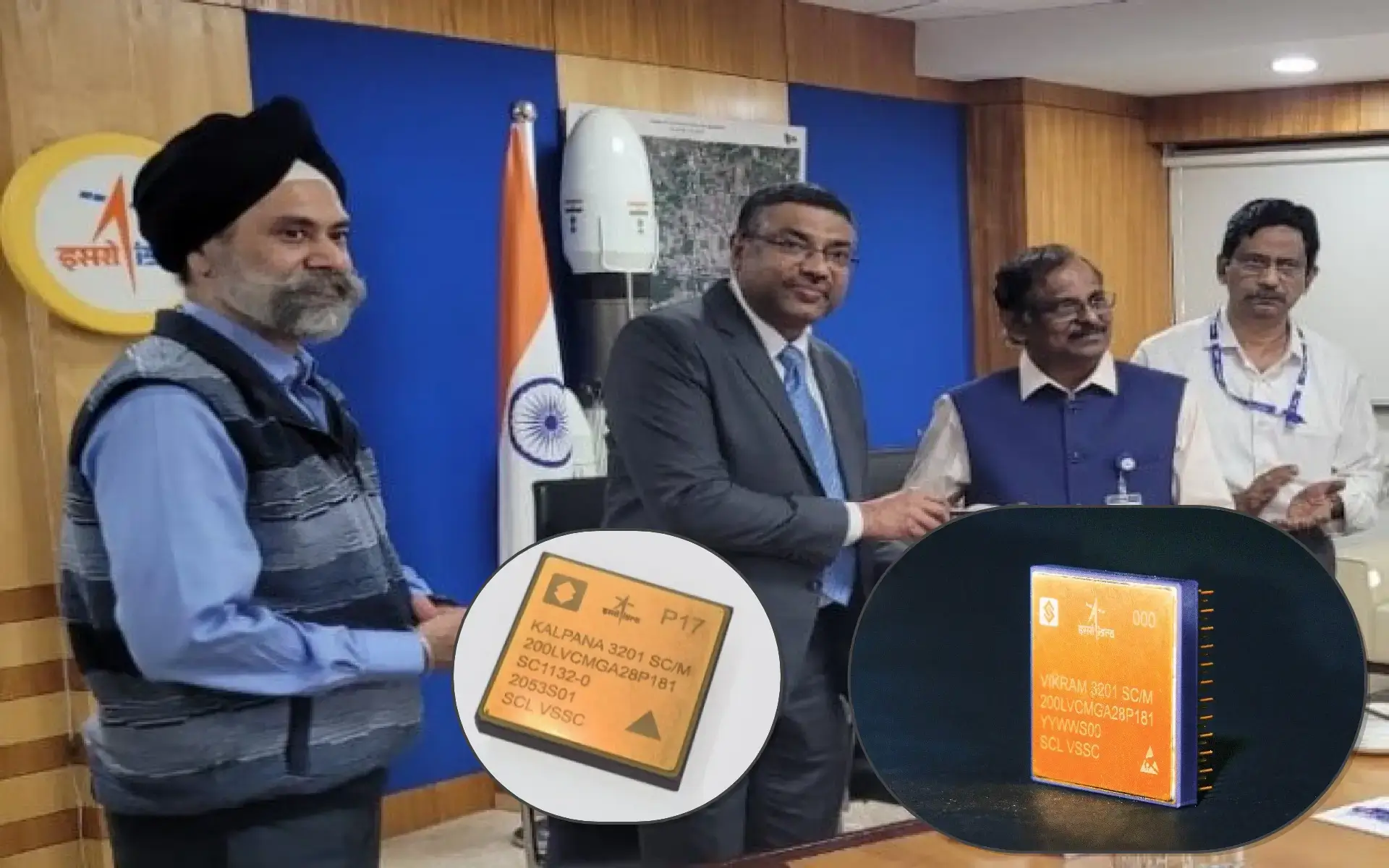Bengaluru: ISRO’s Vikram Sarabhai Space Centre, in collaboration with the Semiconductor Laboratory (SCL), Chandigarh, has developed 32-bit microprocessors named Vikram 3201 and Kalpana 3201. These microprocessors will be used for space-related experiments.
The 32-bit microprocessor helps in the navigation and control of launch vehicles. This is the first attempt of its kind in India and a significant achievement towards self-reliance in the field of microprocessors and onboard computers for launch vehicle navigation and control.
In computers, data occupies space in memory, and the smallest unit used to measure it is called a bit. Vikram 3201 is India’s first 32-bit microprocessor, designed for use in launch vehicles under extreme environmental conditions. The processor was developed at SCL’s 180 nm (nanometer) CMOS (Complementary Metal-Oxide-Semiconductor) semiconductor fab.
ISRO stated that this processor is an advanced version of the indigenously designed 16-bit Vikram 1601 microprocessor, which has been used in ISRO’s launch vehicle avionics systems since 2009.
Kalpana 3201 is a 32-bit SPARC V8 (Scalable Processor Architecture, Version 8) RISC (Reduced Instruction Set Computer) microprocessor. It is based on the IEEE 1754 instruction set architecture.
The first batch of Vikram 3201 and Kalpana 3201 was recently handed over to ISRO Chairman V. Narayanan by S. Krishnan, Secretary of the Ministry of Electronics and Information Technology.

